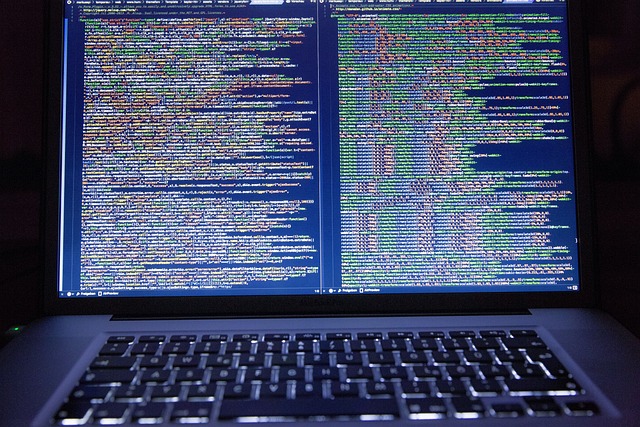How is software development transforming the landscape of music and the entertainment sector? Which companies are at the helm of this revolution, pushing the boundaries of what is conceivable? What innovative solutions are currently being implemented or envisioned to address the industry’s most pressing issues? Surely, an in-depth understanding of these dynamics opens the door to a realm that is as intriguing as it is promising.
Unfortunately, piracy and copyright infringement still pose significant challenges in the entertainment industry (Envisional, 2011). Reuters reports that digital piracy costs the US economy an estimated $12.5 billion, and the livelihoods of about 71,000 jobs in the music industry alone (Reuters, 2014). This statistic underscores the urgent need for a disruptive approach to tackle these issues, giving rise to the potential of software development as a solution. Not only could advanced software solutions limit piracy, they could also offer greater value to consumers, making piracy less appealing. The solution could lie in developing cutting-edge technologies yet to be explored in the music and entertainment industry.
In this article, you will learn about the pioneering companies that are leveraging the power of software development to innovate the music and entertainment industry. The spotlight will be on the novel ideas and groundbreaking solutions they are bringing to the table to address the industry’s most pressing issues. We will delve deep into their strategies, the technology they employ, the challenges they face, and their vision for the future of the industry.
Moreover, the article will ensure a comprehensive understanding of how these software solutions work and how they are transforming the industry. From better copyright protection to enhanced consumption experiences, the potential of software development in music and entertainment seems infinite. This exploration will serve as a lens into the future and the inspiring journey that awaits the music and entertainment business.

Understanding Important Definitions in Software Development for Music and Entertainment
Software Development is the process of creating computer programs, including the planning stages, design, coding, testing, and maintenance. In the context of music and entertainment, this software can range from streaming platforms to sound editing tools.
Music and Entertainment Industry refers to the business sectors that create, produce, sell and distribute music, movies, tv shows, games, and other forms of leisure activities. It involves singers, actors, directors, production firms, and broadcast corporations.
Innovation represents a new method, idea or product that aims to improve efficiency or functionality, often leading to increased customer satisfaction and business growth. In digital music and entertainment, innovation may come in different forms like advanced interfaces, user-friendly features, or new delivery systems like streaming.
Riding the Rhythm: How Software Development is Creating a New Beat in the Music Industry
The Harmonious Union of Music and Technology
The music and entertainment industry has been reinvented through the lens of technology, with software development playing a remarkable role in it. The advent of software applications has turned the audio and visual entertainment experience from monochromatic to kaleidoscopic. Producers, artists, and audio engineers use software tools to create, edit, and produce high-quality content that leaves the audience captivated. Even more, the integration of AI and machine learning has brought about an array of innovative possibilities, rewriting the rules and expectations of the industry.
Software development has also empowered artists in ways previously unimagined. With advanced tools at their fingertips, artists can manipulate sounds, generate tunes, and create compositions autonomously. This democratization has led to an explosion of artistic creativity and diversity, altering the soundscapes of the music industry. It’s not just on the creation side either, platforms for distribution and consumption have similarly been revolutionized, with streaming platforms, digital libraries, and social media radically changing how we access and experience these creative outputs.
Software Development Companies Leading the Charge
Various innovative companies have become the trailblazers of software development in the music and entertainment industry. They have designed comprehensive tools that fulfill multiple needs – from creation and editing to distribution and marketing.
- Spotify: Offering an extensive music library, personalized playlists, and a platform for artists to reach a global audience, Spotify stands out as a pioneer of digital music distribution.
- Audio Network: This global music company empowers content creators with high-quality tracks for synchronization in any type of media.
- Ableton: Reimagining music production through their software (Live, Push, and Link), Ableton provides tools for writing, recording, and performing music.
- SoundCloud: An open platform encourages musicians to share their work, network with others, and grow their fanbase.
Transformed Listener Experience
A flip side of this music software revolution has been the transformed listener’s experience. Software development has opened up new arenas of music engagement and interaction. Users can personalize their own experiences, discover new artists, create playlists, interact with creators, and contribute to a community of like-minded music enthusiasts. This enhanced accessibility and interactivity have essentially redefined our relationship with music, making it a more immersive, personalized, and dynamic experience than ever before.
Behind the Curtains: Unveiling Software Development’s Role in Disrupting Traditional Entertainment Practices
Are We Witnessing a Revolution in Entertainment?
When we reflect on the transformation of the entertainment industry over the last decade, an interesting question emerges: Are we currently witnessing a seismic shift in the way entertainment is created, distributed and consumed, driven by software development? The answer is an unequivocal yes. With the advent of cloud-based platforms, artificial intelligence, augmented and virtual reality technologies, entertainment has reached new heights of immersion. From streaming platforms transforming the way films and music are consumed to video game developers employing AI and VR to create hyper-realistic experiences, software development companies are transforming the landscape of the entertainment industry.
The Challenge at Hand
With every innovation, new problems surface. The accelerated growth of digital entertainment platforms has resulted in overcrowded marketplaces, making discoverability a major challenge. Similarly, the new age of personalized content, while unparalleled for delivering consumer satisfaction, brings with it the immense challenge of data management and security. The varied nature of content – text, audio, video, interactive – further complicates the problem. Additionally, as technology further blurs the line between reality and virtual, striking the balance between ethical use and commercial exploitation of such technologies poses another major challenge.
Leading the Way: Best Practice Examples
Despite these challenges, some software development companies have not only survived but thrived, setting industry benchmarks with their innovative practices. Netflix, for example, uses its renowned recommendation algorithm to tackle the issue of discoverability. This cloud-based piece of software selectively tags content based on user interaction and viewing patterns, providing suggestions that are likely to resonate with each individual user. Thus, amidst a sea of content, users can find what they enjoy, and creators can reach their intended audience.
Another promising practice comes from the world of video games – Fortnite. Epic Games, Fortnite’s parent company, showcases how to handle the chaos of multi-user, real-time interactions. The company’s robust back-end infrastructure meticulously manages simultaneous logins and participation from millions of players worldwide without any significant loss of game performance.
On the music front, Pandora has set an example with its Music Genome Project. By tagging songs with hundreds of attributes and using complex algorithms to find similarities, it effectively tackles the issue of individual personalization while maintaining a vast database.
These examples reveal the significant, transformative contribution of software development to the entertainment industry. By finding innovative solutions to new-age problems, they continue to propel the industry forward into an era of extraordinary possibilities.
Uncoding the Future: The Quantum Leap of Software Development in Revolutionising the Entertainment Industry
Is the Future of Entertainment Being Sculpted by Software Development?
Indeed, new vistas are opening within the entertainment and music industry, thanks to software development. Innovative technologies are transforming how music is crafted, distributed, and enjoyed. One of the primary forces behind this revolution in the entertainment sector is the increasingly intelligent and versatile software that powers these innovations. From AI-based music creation systems to virtual reality concerts, the next generation of music and entertainment hangs on the formidable thread of sophisticated software frameworks.
Facing the Music: Persistent Challenges in the Industry
Nonetheless, the transition is not all sunshine and roses. A range of challenges hinders the adoption and utilization of these tech-driven systems in the entertainment sphere. The most pressing issue at hand is the sheer complexity associated with crafting such technological systems while ensuring the maintenance of the artistic integrity of the music they help produce. Another concern is safeguarding the privacy and security of artists and users interacting with these digitally-driven mediums. Intellectual property rights issues further muddy the waters, as developers scramble to define what constitutes plagiarism or theft in a world where AI can recreate/explore already established music styles and genres.
Pioneering the New-age Entertainment: Cases in Point
Despite the hurdles, however, a number of pioneering companies are actively navigating these obstacles to transform the status quo of the entertainment industry. Spotify, for instance, uses intricate algorithms and data sets to suggest personalized playlists for each user, improving listener’s experience by adapting to their taste.
Similarly, Voise has thrown its weight behind independent artists, providing a decentralized music platform powered by blockchain technology. This not only ensures enhanced transparency and equitable remuneration but also addresses plagiarism concerns.
Then we have innovations like Teosto, which uses advanced data analysis software to better track and compensate copyright holders. Using advanced algorithms, Teosto analyzes music broadcasts to determine exact compensation for artists, thereby making royalty payments more fair and accurate. All in all, these examples show the depth and scope at which software development is not only meeting the challenges head-on but also adding significant value to the music and entertainment industry.
Conclusion
Can you imagine a world where creativity merges with technology to transform the way we experience entertainment? This is not only possible, but it is happening right now in the world of music and entertainment. Innovative companies are leveraging software development to create groundbreaking technologies that are reshaping the entertainment industry. As we witnessed throughout this article, they are creating more immersive and personalized experiences that connect artists and audiences in new and significant ways.
In contemplating about the future, we encourage you not only to keep abreast of this trend but also to make our blog a part of your quest for knowledge. By frequently visiting our page, you get to step into a realm laden with next-level evolution of music and entertainment. From virtual reality concerts to AI composed music, these developments are disrupting the present and shaping the future of the industry. Hence, we assure you a front-row seat in this fascinating journey, keeping you informed, inspired, and excited about the future.
As you continue to journey with us, we understand the suspense and thrill new releases bestow. Given the pace at which these technological advancements are moving, your wait for new updates won’t be a long one. So why not stay tuned? Why not anticipate and see for yourself the manifestation of these extraordinary innovations in music and entertainment? Remember, by subscribing to our blog, you are not merely an onlooker but an active participant in this transformative era in music and entertainment.
F.A.Q.
What is the role of software development in the music and entertainment industry?
A1: Software development is pivotal in the music and entertainment industry as it offers innovative solutions for producing, distributing, and promoting content. It creates platforms that not only enhance user experience but also streamline business operations.
Which companies are leading in innovating the entertainment industry with software development?
A2: Companies like Spotify, with its personalized music streaming service, and Netflix, with its robust streaming platform, are leading the way in using software development to innovate the entertainment industry. These companies utilize software to deliver customized, convenient, and high-quality entertainment to their users.
How are these software developments reshaping the music industry?
A3: Software development plays a crucial part in the growth of digital music platforms and has democratized music distribution with services like SoundCloud. It has also facilitated the rise of virtual concerts and music festivals, thus creating new revenue streams for artists and music companies.
How is software development making the entertainment experience more personalized and user-friendly?
A4: Software development is enabling entertainment companies to capture user preferences and habits, utilizing data analytics to provide personalized content suggestions. Moreover, user-friendly interfaces and features, such as easy search and discovery options, improve audience engagement.
What are some challenges faced in integrating software development into the music and entertainment industry?
A5: At times, integrating software development in this industry can face challenges like regulatory hurdles, copyright issues, and privacy concerns. Additionally, technological factors such as system compatibility and maintaining operability across different devices can also pose challenges.


